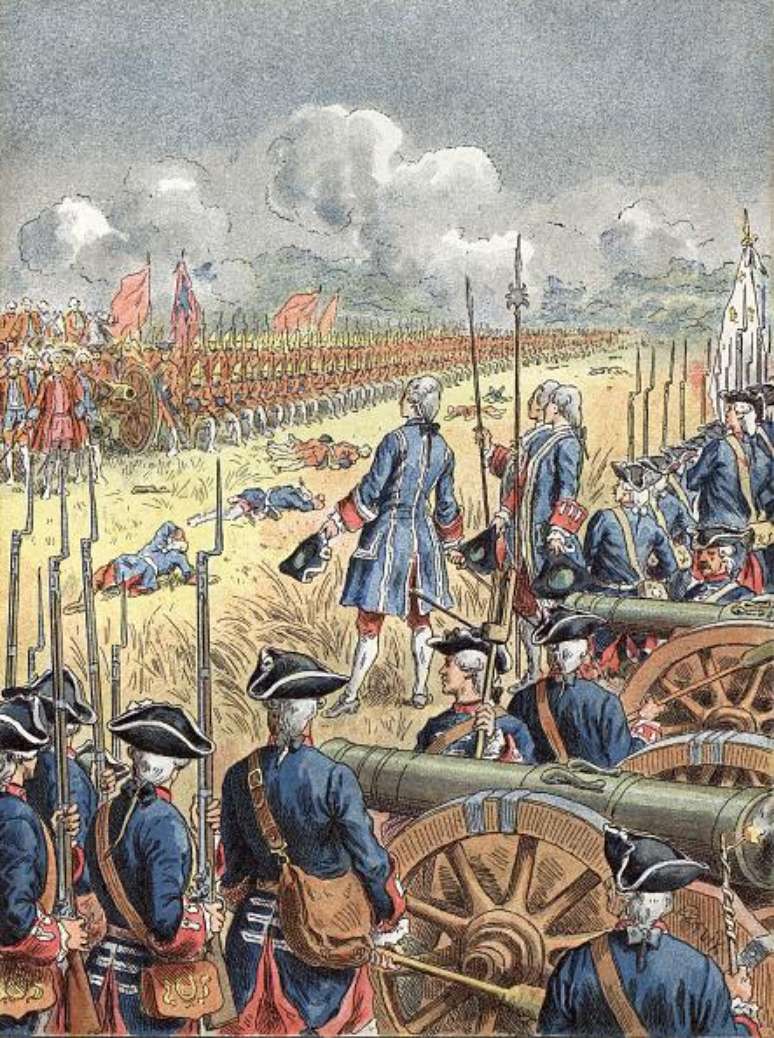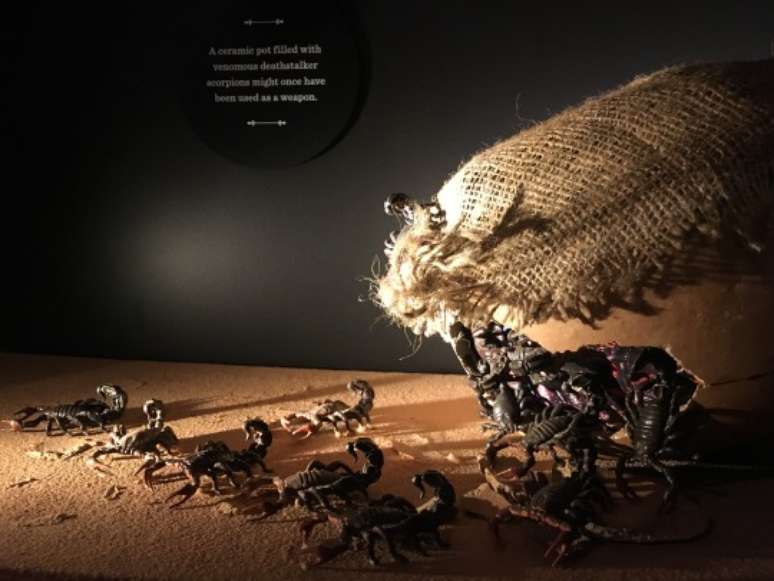Throughout history, armies have sought different ways to fight their enemies. In most cases, the strategies were cowardly and unethical, while other times they were simply ridiculous.
In this text we share five of the worst weapons of war ever used by humanity.
1. Scorpion bombs
(Source: American Museum of Natural History/Anna Faherty/Flickr/Reproduction)
2000 years ago, soldiers created clay bombs filled with poisonous scorpions. This is what author Adrienne Mayor says in the book Greek Fire, Poison Arrows, and Scorpion Bombs: Biological and Chemical Warfare in the Ancient Worldin which he reveals that these bombs were used against Roman soldiers trying to surround the ancient city of Hatra.
The soldiers endured scorpion bomb attacks for twenty days. The animals hit the most exposed areas of the skin and burned the face and eyes.
2. Plague caused by sheep and donkeys

The so-called Hittite plague is considered one of the first examples of man-made biological warfare. It refers to the bacterial disease tularemia, which has been weaponized through the use of infected sheep and donkeys deployed in some trading areas to contaminate enemies.
The plague spread to the eastern Mediterranean in the 14th century BC. According to the definition of the Centers for Disease Control and Prevention, tularemia is “an infectious disease caused by the bacterium Francisella tularensis. It is transmitted by ticks, fly bites and direct contact with infected animals or animal skin. It can also be transmitted through inhalation of aerosols while performing outdoor work (e.g., mowing the lawn) where infected animals live.”
3. An elephant at war

Pyrrhus, king of Epirus, was once involved in a dispute in Argos in which he was fighting a fleet of elephants. What historical records tell us is that one of the elephants died, which sent the remaining animals into a violent frenzy.
In the confusion, Pyrrhus was wounded by an enemy soldier and, when he reacted, stabbed him to death. The mother of the victim of the attack would have thrown a tile at Pirro’s head, hitting her target.
4. Greek fire

Greek fire was an incendiary weapon created by the Byzantine navy with the aim of having more effective combat in naval battles, since the weapon allowed the fire to spread over the water.
It was a chemical mixture composed of petroleum or naphtha that allowed the flames to continue burning even in water. The exact ingredients and flame generation mechanisms are not yet well known. But the researchers imagine that perhaps quicklime was used to start the chemical reaction. Water was not effective in extinguishing Greek fire: this only happened when the victims used sand or vinegar.
5. Bullets from corpses and feces

To counter the poisonous scorpions, the defense of the Roman emperor Hadrian found an ingenious way to take revenge: his army simply constructed projectiles composed of human excrement and corpses. In other words, soldiers sent bodies infected with diseases, such as bubonic plague, into the enemy camp.
So did the Mongol army, which threw infected corpses over the walls during the siege of Caffa around 1346. It was so terrible that it helped spread the plague throughout Europe.
Poop was also attached to swords and arrows, to spread disease, as well as the bad smell. It was a very common strategy among Scythian archers and Roman soldiers, who used various putrefied elements (such as blood) to increase the power of their weapons.
Source: Terra
Ben Stock is a lifestyle journalist and author at Gossipify. He writes about topics such as health, wellness, travel, food and home decor. He provides practical advice and inspiration to improve well-being, keeps readers up to date with latest lifestyle news and trends, known for his engaging writing style, in-depth analysis and unique perspectives.







-1huzz27z1sdia.jpg)
